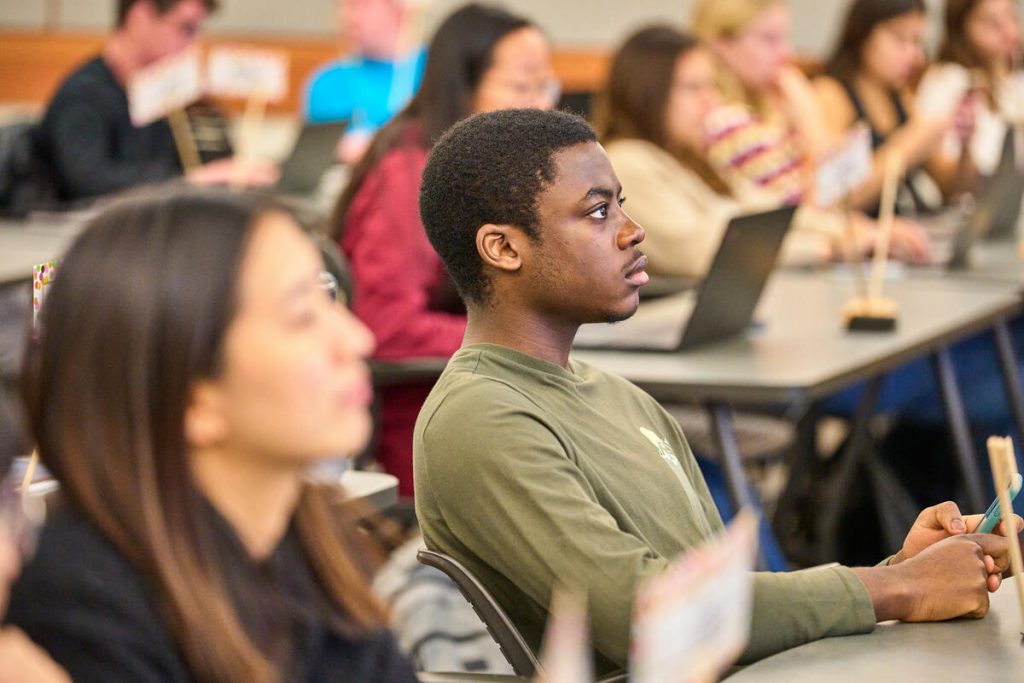First, realize that becoming a major means you have decided to pursue the major before registration begins. You have filled out the appropriate paperwork and YES reflects your choice of new major. If you decide to pursue the major after registration has opened, most of our popular introductory courses will already be filled and you have essentially postponed your entry into the major for another semester. Your lack of prior planning does not earn you the ability to jump ahead of other student on the wait list for one of these courses. The discussion that follows assumes you have taken no CS courses, or possibly CS1101 before declaring the major.
New in 2019 and beyond: A&S students may declare CS as a second major at any time (provided the A&S major declaration window is open). You do not need to have declared your primary major yet. See your A&S advisor for more details.
Careful planning is essential to complete the CS major on time. You must complete CS 3251 no later than the spring of your junior year since it is a prerequisite for CS 4959, which is required and is only taught in the fall. You must also plan carefully for your required project course, completing any necessary prerequisites in time to take the project course when it is offered.
First Year (Primary or Secondary majors): Whether you begin your CS1101 course in the fall or spring, the major can easily be completed in 8 semesters. Even if a few of our more popular classes fill up as you register for your sophomore fall courses, you will complete the program and as a declared major, the department and your advisor are committed to guiding you to the finish! You also have the flexibility of adding an additional major, minor or possibly completing your CS master’s degree. For more information on these additions to your CS career, see the Special programs section of the undergraduate catalog.
Sophomore Primary major: The CS major can be completed in 6 semesters provided most of your first-year classes can be applied to some part of the major requirements, to include tech and open electives. If you were previously in another Engineering major, this will be even easier as you probably have much of the math and science required. Even if a few of our more popular classes fill up as you register for your sophomore fall courses, your sophomore spring semester registration should go well as you will be an upperclassmen registering for introductory courses.
Sophomore Secondary major: The secondary major can be completed in 6 semesters with a little bit of careful planning. You may need to take several CS courses per semester, but this is still achievable.
Junior Primary major: The CS primary major is not designed for less than 6 semesters. If you were pursing another Engineering major and only lack CS specific classes, then it may be possible. You should meet with Dr. G. Hemingway prior to transfer to be sure you can finish. If you are willing to stay an extra year to finish this late-add CS major, that is another option. The minor is strongly recommended however.
Junior Secondary major: Completing the CS secondary major in 4 semesters is not possible unless you have taken at least CS2201 prior to your Junior year. With very little variance allowed, and assuming required classes are not scheduled at the same time, you may be able to complete the major, but it is highly unlikely and no guarantees will be made.
Senior year: Neither the major nor the minor can be completed in two semesters.
Adding the major late does not give you priority to get into classes ahead of other students who added the major at a reasonable time in their Vanderbilt career. We will not jump you ahead in a waitlist or put you in a full class because you are behind and need to catch up. We are committed to helping you fulfill your Vanderbilt requirements for your chosen major when you come to the major with sufficient time still left in your four year window. If you are willing to stay/finance an additional year due to your late-add of the major we will certainly be happy to help you with that.
